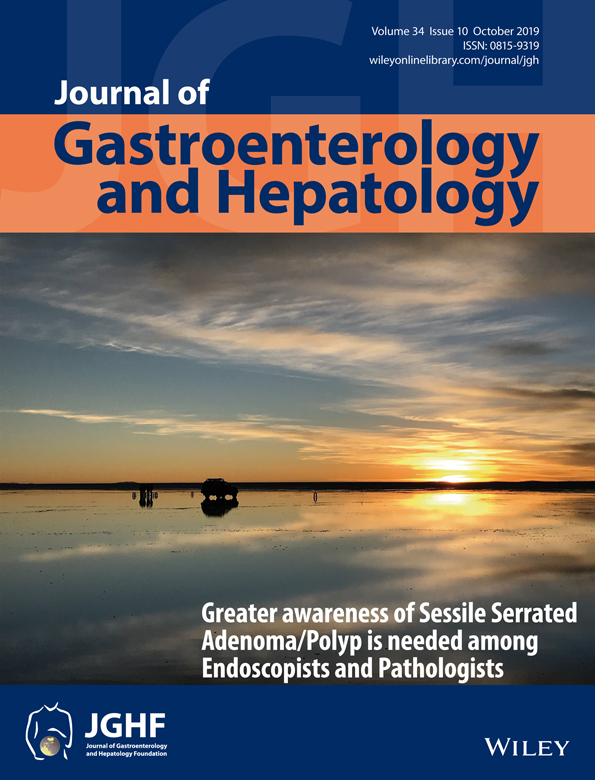Association between dietary iron and zinc intake and development of ulcerative colitis: A case–control study in Japan
Abstract
Background and Aim
The prevalence of ulcerative colitis (UC) has been increasing in Japan. Trace elements, such as iron, zinc, magnesium, and copper, can cause digestive symptoms where there is a deficiency or excess. We focused on the dietary intake of trace elements and their associations with UC development.
Methods
A multicenter, hospital-based case–control study was conducted in Japan. Cases were 127 newly diagnosed UC patients, and 171 age-matched and sex-matched hospital controls were recruited. We considered that UC patients had potentially changed their dietary habits due to disease symptoms. The dietary habits were investigated using a self-administered diet history questionnaire to analyze the dietary intakes and frequencies at two points, the previous 1 month and 1 year before.
Results
In the assessment of dietary habits 1 year before, the highest intake of iron showed an increased odds ratio (OR) for UC on multivariate analysis (OR = 4.05, 95% confidence interval, 1.46–11.2, P < 0.01). The highest intake of zinc 1 year before showed a decreased OR for UC (OR = 0.39, 95% confidence interval, 0.18–0.85, P = 0.01). Intakes of magnesium and copper had no significant association with UC. Because most UC cases had experienced the first symptom of UC within the previous 11 months, these intakes at 1 year before represented an association with pre-illness dietary habits.
Conclusion
A high intake of iron has some effect on the development of UC. In contrast, a high intake of zinc has a protective effect on the development of UC.




